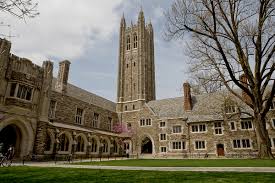Perched amidst the charming town of Princeton, New Jersey, Princeton University stands as a beacon of intellectual rigor and groundbreaking research. Founded in 1746 as the College of New Jersey, Princeton has a rich history steeped in tradition and a vibrant present pulsating with innovation. This article delves into the core principles that define Princeton, exploring its commitment to undergraduate education, its interdisciplinary research focus, and its unwavering dedication to fostering future leaders and responsible citizens.
A Legacy of Scholarly Excellence
Princeton’s story begins with a commitment to educating future leaders. Founded by Presbyterian ministers, the university aimed to train a new generation of clergy and civic leaders for the burgeoning American colonies. This dedication to academic excellence continues to be a cornerstone of the Princeton experience.
Throughout its history, Princeton has consistently ranked among the top universities in the world. Its faculty boasts Nobel laureates, Pulitzer Prize winners, and leading figures across various disciplines. These accomplished individuals not only impart knowledge but also inspire and mentor the next generation of intellectual giants. Students have the privilege of learning from the very minds shaping academic discourse and pushing the boundaries of their fields.
Princeton’s acceptance rate hovers around a mere 4%, attracting some of the brightest minds from around the globe. This rigorous selection process fosters a dynamic learning environment where students challenge and learn from one another, leading to lively discussions and a vibrant intellectual exchange.
A Haven for the Undergraduate Experience
Unlike many universities that prioritize graduate programs and research, Princeton’s core identity rests on its unwavering commitment to undergraduate education. The university offers a unique residential college system, fostering a close-knit community where students live, learn, and socialize alongside their peers and faculty mentors.
The undergraduate curriculum at Princeton emphasizes a rigorous liberal arts education. Students are encouraged to explore diverse disciplines beyond their chosen major, ensuring a breadth of knowledge and a deeper understanding of the world. This holistic approach ensures that graduates are not only well-versed in their fields but also possess the critical thinking and communication skills necessary to thrive in a complex world.
Furthermore, Princeton emphasizes experiential learning opportunities beyond the traditional classroom setting. Independent research opportunities allow undergraduates to delve into cutting-edge projects alongside renowned faculty. Additionally, Princeton boasts a vibrant extracurricular scene, with student-run organizations catering to diverse interests, fostering leadership skills and fostering a sense of community.
A Hub of Interdisciplinary Research
While renowned for its undergraduate education, Princeton is also a powerhouse of research. Across its various departments and institutes, researchers tackle complex challenges by fostering collaboration across disciplines. This interdisciplinary approach allows for the exploration of problems from diverse perspectives, leading to groundbreaking discoveries.
The Princeton Plasma Physics Laboratory, a pioneering research facility, exemplifies this spirit of collaboration. Physicists, engineers, and computer scientists work together on the forefront of fusion energy research, with the potential to revolutionize global energy production. Similarly, the Princeton Neuroscience Institute fosters collaboration between biologists, psychologists, and computational scientists to unravel the mysteries of the human brain.
This focus on interdisciplinary research ensures that Princeton’s scientific advancements are not confined to theoretical exploration. Researchers actively translate their findings into real-world solutions, with applications in fields like medicine, technology, and environmental sustainability.
Cultivating Responsible Leaders for a Globalized World
Princeton recognizes its responsibility extends beyond the academic realm. The university cultivates a strong commitment to fostering responsible leaders and engaged citizens. Programs like the Princeton School of Public and International Affairs equip students with the knowledge and skills necessary to tackle complex global challenges.
Additionally, Princeton encourages student participation in service-learning opportunities. These programs allow students to utilize their academic skills to address social issues within the local community and beyond. This promotes a sense of civic responsibility and fosters a dedication to making a positive impact on the world.
Princeton’s alumni network embodies this dedication to leadership and social impact. From former presidents and CEOs to renowned scientists and humanitarians, Princeton graduates have gone on to become influential figures in their respective fields. Their work serves as a testament to the university’s commitment to fostering not just intellectual giants, but also responsible leaders who shape the world.
A Legacy That Continues to Inspire
As Princeton University embarks on its next chapter, it does so with a rich legacy of academic excellence, innovative research, and an unwavering commitment to undergraduate education. The university continues to attract the brightest minds, fostering a vibrant intellectual environment where learning thrives. With its dedication to interdisciplinary exploration and responsible leadership, Princeton University is certain to remain a beacon of intellectual progress and positive societal impact for generations to come.
